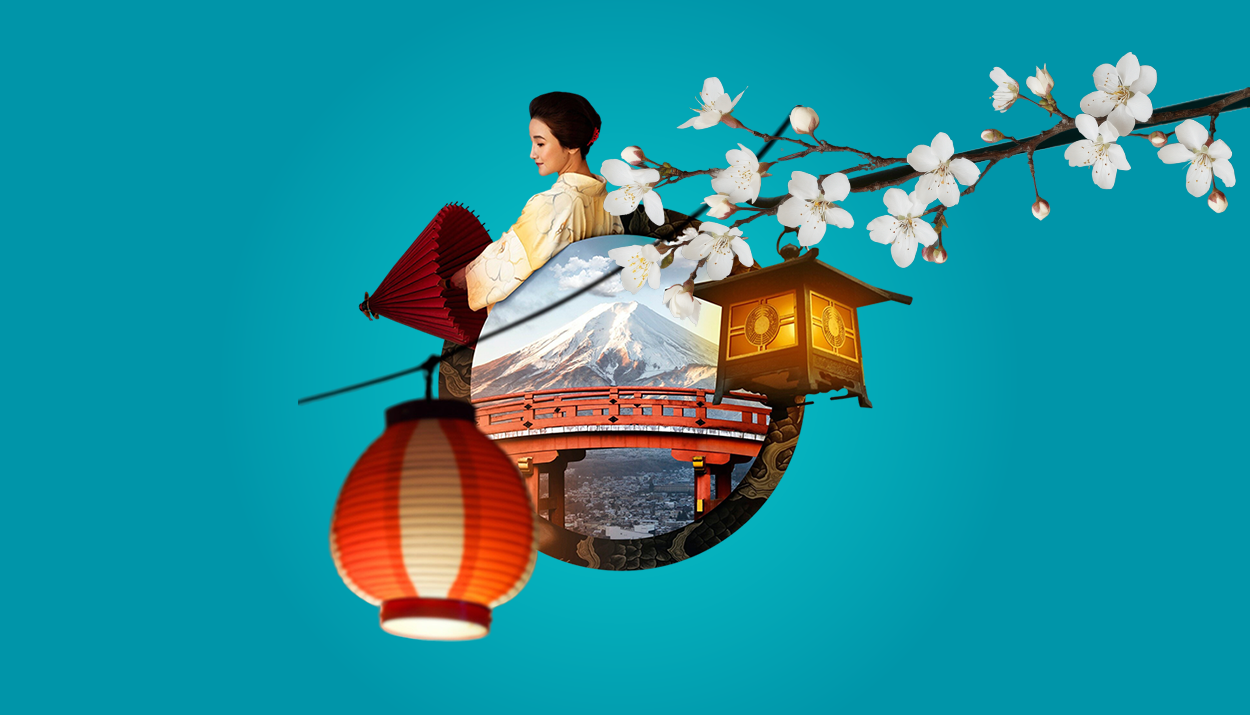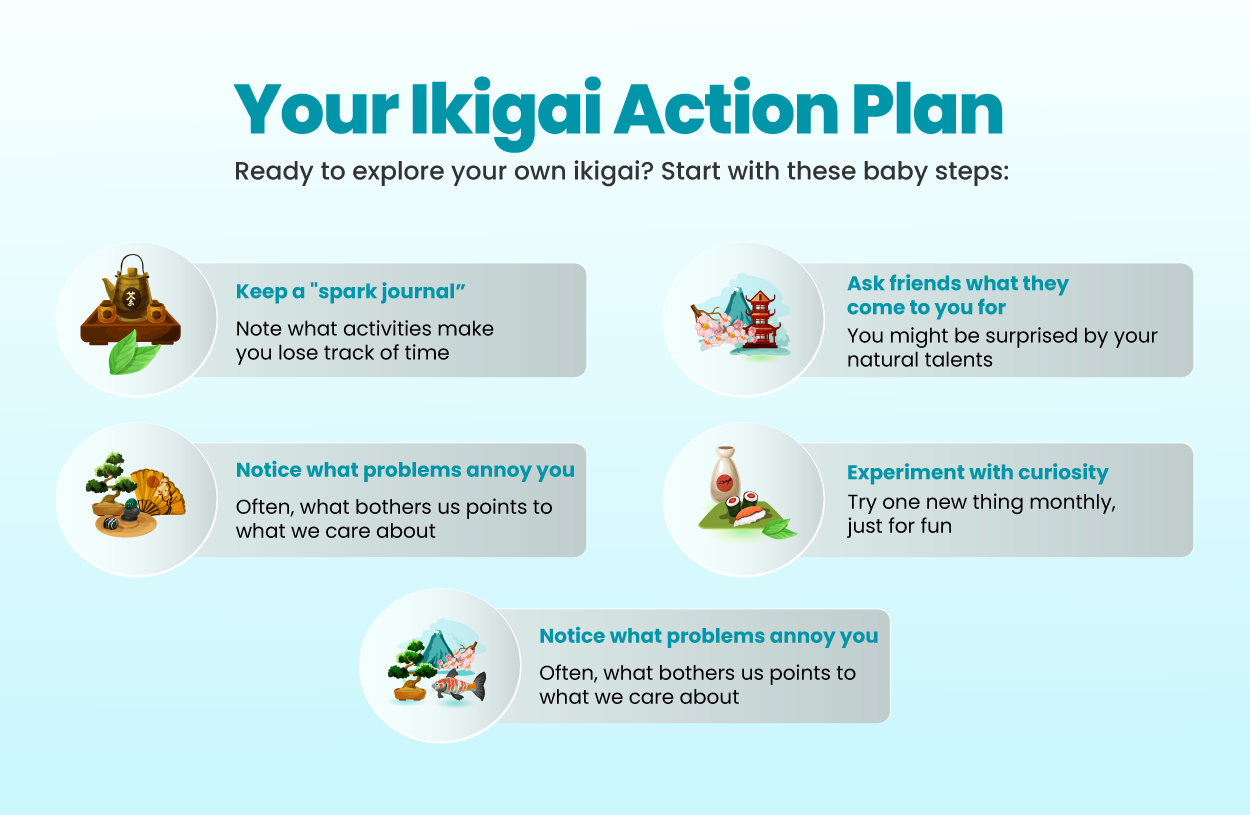Ever wake up and wonder, “What’s the point of all this?” Well, the Japanese have a word for that feeling – and more importantly, they have the antidote. It’s called ikigai (pronounced ee-key-guy), and no, it’s not a new martial art or a fancy sushi roll. It’s something far more delicious: the secret recipe for a fulfilling life.
What Exactly Is This Ikigai Thing?
Ikigai literally translates to “life’s purpose” or “reason for being.” But before you start having an existential crisis let’s break this down. The Japanese concept of ikigai isn’t about finding your ONE true calling. Instead, ikigai is found at the sweet intersection of four simple questions:
- What do you love?
- What are you good at?
- What does the world need?
- What can you be paid for?
Your Daily Ikigai Toolkit: No Meditation Cushion Required
You don’t need to move to Japan or become a zen master to apply ikigai principles. Here are some down-to-earth ways to sprinkle this Japanese wisdom into your regular, messy, beautiful life:
Start Small, Think Daily
Forget finding your life’s grand purpose by Tuesday. Instead, ask yourself each morning: “What’s one small thing I can do today that brings me joy and helps someone else?” Maybe it’s making your partner laugh, helping a coworker, or finally watering that plant.
The 80% Rule
The Japanese have another concept called “hara hachi bu” – eating until you’re 80% full. Apply this to life goals too. You don’t need to be 100% passionate about everything. Sometimes 80% enthusiasm is perfectly fine, and definitely more sustainable than burning out in pursuit of perfection.
Embrace Your Inner Beginner
Ikigai loves a good beginner’s mind. That hobby you’ve been putting off? The skill you think you’re “too old” to learn? Jump in anyway. The point isn’t to become the next Mozart or Picasso – it’s to engage with life actively.
Find Your Tribe (Even If It’s Just Two People)
Community is huge in ikigai philosophy. You don’t need a massive social network – just a few people who get you and support your weird little dreams. Sometimes your ikigai involves others, and that’s not just okay, it’s beautiful.
Make Peace with “Good Enough”
This might be the most revolutionary ikigai principle for perfectionist overachievers: sometimes good enough is actually perfect. Your ikigai doesn’t have to save the world or make you Instagram-famous. It just needs to make you feel alive and useful.
Real Talk: When Ikigai Feels Impossible
Sometimes life feels too overwhelming for philosophical concepts. Bills need paying, dishes need washing, and that project deadline isn’t moving itself. When you’re in survival mode, finding your ikigai can feel like a luxury you can’t afford.
But here’s the thing – ikigai doesn’t require extra time or money. It requires a slight shift in perspective. Your ikigai might be hidden in the work you’re already doing, the relationships you already have, or the small moments you’re already experiencing. Sometimes it’s about finding meaning in the mundane rather than adding more to your plate.
Research backs up what the Japanese have known intuitively: having a sense of purpose correlates with better health, longer life, and increased happiness. Studies show that people with a strong sense of ikigai have lower rates of dementia, better cardiovascular health, and greater resilience during tough times.
Remember, finding your ikigai isn’t about having a lightning-bolt moment where everything becomes clear. It’s about paying attention to what already brings you alive and gently nurturing those seeds.
The Beautiful Mess of It All
The most refreshing thing about ikigai is that it celebrates the beautifully imperfect nature of human existence. You don’t need to have it all figured out. You don’t need to choose between passion and practicality. You just need to show up, pay attention, and trust that meaning often emerges from the intersection of love, skill, service, and yes, sometimes money too.
So tomorrow morning, before you reach for your phone or start your usual routine, take a moment. Ask yourself what small thing you can do that day that honors both who you are and who you’re becoming. That’s your ikigai calling – and trust me, it’s worth answering.








